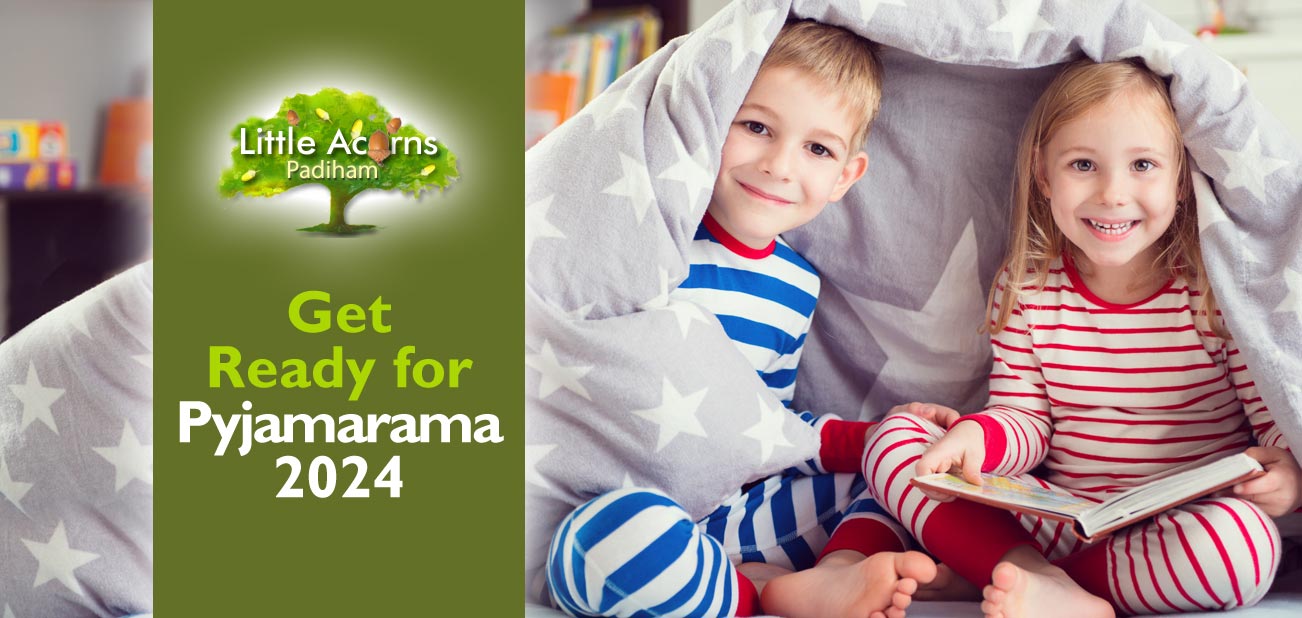
Get ready for Pyjamarama 2024. This year it arrives on Friday 17th of May in nurseries, preschools, schools and homes all around the Nation. That date is not carved in stone, though, as some settings may find an alternative date more convenient for their particular circumstances.
What is Pyjamarama?
 Pyjamarama is a one-day fundraising event that’s organised through the children’s reading charity BookTrust. It takes place each year across a variety of UK settings including homes, schools, preschools, nurseries and more. As well as being great fun for those organising and taking part, the initiative is beneficial to millions of disadvantaged children. The ultimate aim is to raise money to fund the purchase of books and resources, so that every child in the UK gets the chance for bedtime stories and each family has proper reading opportunities. The initiative is hugely popular, great fun, and transforms lives. Today, we take a look at what to expect, how to get involved, and the many benefits of Pyjamarama.
Pyjamarama is a one-day fundraising event that’s organised through the children’s reading charity BookTrust. It takes place each year across a variety of UK settings including homes, schools, preschools, nurseries and more. As well as being great fun for those organising and taking part, the initiative is beneficial to millions of disadvantaged children. The ultimate aim is to raise money to fund the purchase of books and resources, so that every child in the UK gets the chance for bedtime stories and each family has proper reading opportunities. The initiative is hugely popular, great fun, and transforms lives. Today, we take a look at what to expect, how to get involved, and the many benefits of Pyjamarama.
“Spend a day in your pyjamas to raise money for BookTrust and be part of something amazing.”
How Does Pyjamarama Work?
Settings like Little Acorns Nursery in Padiham first register with the Pyjamarama fundraising scheme, well ahead of the event date. In return, they receive a free downloadable fundraising pack. This contains information and activity resources that they’ll be able to use with the nursery children on Pyjamarama day as well as things like posters to publicise the event. Access to BookTrust’s Pyjamarama Hub will also be given. This allows access to additional resources and activity ideas for children to take part in.
On the day itself, the idea is for children and staff to come to the nursery/preschool dressed in pyjamas to add an extra element of fun. Having said that, PJs are not obligatory — children can wear something else if they prefer, for example colourful T-shirts. Either way, we ask that each child brings £1 with them. This will be donated to the BookTrust charity to raise money for disadvantaged children, who might otherwise not have access to bedtime stories. The ensuing day will be relaxed and fun, with time spent together reading and sharing stories, watching specially-recorded videos from children’s favourite authors and taking part in a whole host of other fun, reading- and story-related activities.
At the end of the day, children who took part in Pyjamarama will receive certificates to take home. All money raised by the children and setting will subsequently be sent off to the fundraising team at BookTrust.
Pyjamarama is Fun, Educational & Worthwhile
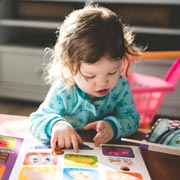 Pyjamarama is always a fun day for both adults and children. The added aspect of pyjamas makes it special, quirky and relaxed. And, at the end of the day, it’s incredibly worthwhile. Not only does it raise money to give disadvantaged children and their families opportunities for reading and bedtime stories, but it also encourages those children taking part in Pyjamarama to read more, for pleasure as much as anything. Additionally, it gives children a different perspective and encourages altruism and empathy for others less fortunate than themselves.
Pyjamarama is always a fun day for both adults and children. The added aspect of pyjamas makes it special, quirky and relaxed. And, at the end of the day, it’s incredibly worthwhile. Not only does it raise money to give disadvantaged children and their families opportunities for reading and bedtime stories, but it also encourages those children taking part in Pyjamarama to read more, for pleasure as much as anything. Additionally, it gives children a different perspective and encourages altruism and empathy for others less fortunate than themselves.
“Raise vital funds to help every child get a bedtime story.”
Every £1 helps. So, children and parents — please get involved. Here’s how fundraising can typically help:How Pyjamarama Helps Disadvantaged Children
How Can You Get Involved?
“Through Pyjamarama we want to help support the children who are at risk of missing out on the joy and confidence that bedtime stories provide.”
If you haven’t already seen them, look out for posters and a letter to parents highlighting the date for Pyjamarama at your child’s setting this year. On the day, please ensure your child goes to nursery/preschool or school with £1 and is ideally dressed in PJs although, as we said before, it’s not obligatory — but is a lot of fun when everyone joins in.
“Naomi has seen how reading takes her into imaginary worlds and helps her deal with everyday worries and is amazed how it is also helping her to do well in all subjects at school.”
Little Acorns Nursery & Preschool, Padiham
High-Quality Weekday Childcare in Padiham, Lancashire
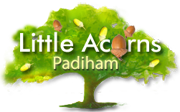
Babies and under-fives get the very best start at Little Acorns Nursery in Padiham. As well as offering a convenient childcare service in a loving and homely environment, children also receive a comprehensive early years education at Little Acorns. We also support all Government-funded free childcare schemes including free childcare hours for eligible 2-year-olds and free childcare hours for eligible 3 and 4-year-olds. Contact us if you’d like to register your child for a childcare place. Or, if you’re not yet sure, why not arrange a guided tour? We can show you and your little one around to see how well they fit in. We’re also here to answer any questions. Please choose a button to get started:
Little Acorns is a nursery and preschool in Padiham, (BB12), also being conveniently close by for those in Hapton, Rose Grove, Burnley, Altham, Huncoat, Read, Simonstone, Sabden, Higham, and Wood End.
BookTrust is a Registered Charity, number 313343.
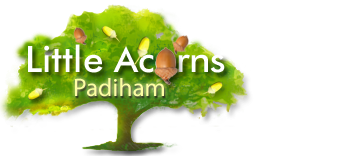
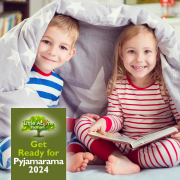
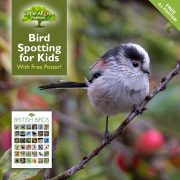
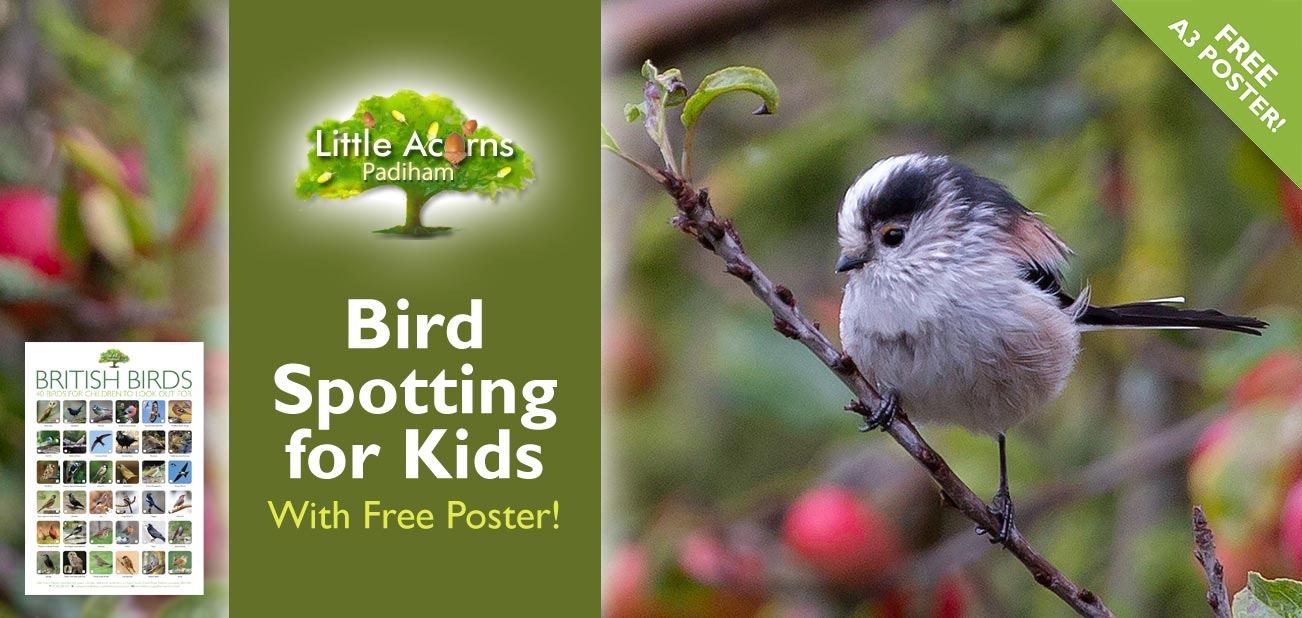
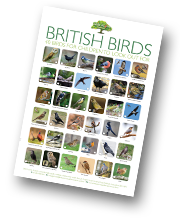 Today’s bird spotting activity for kids continues our series of nature-themed posts that each come with a free reference poster for families to download. Featuring 40 British birds, the activity and the poster represent a great opportunity to get children of all ages outdoors, closer to nature. As many of us know,
Today’s bird spotting activity for kids continues our series of nature-themed posts that each come with a free reference poster for families to download. Featuring 40 British birds, the activity and the poster represent a great opportunity to get children of all ages outdoors, closer to nature. As many of us know, 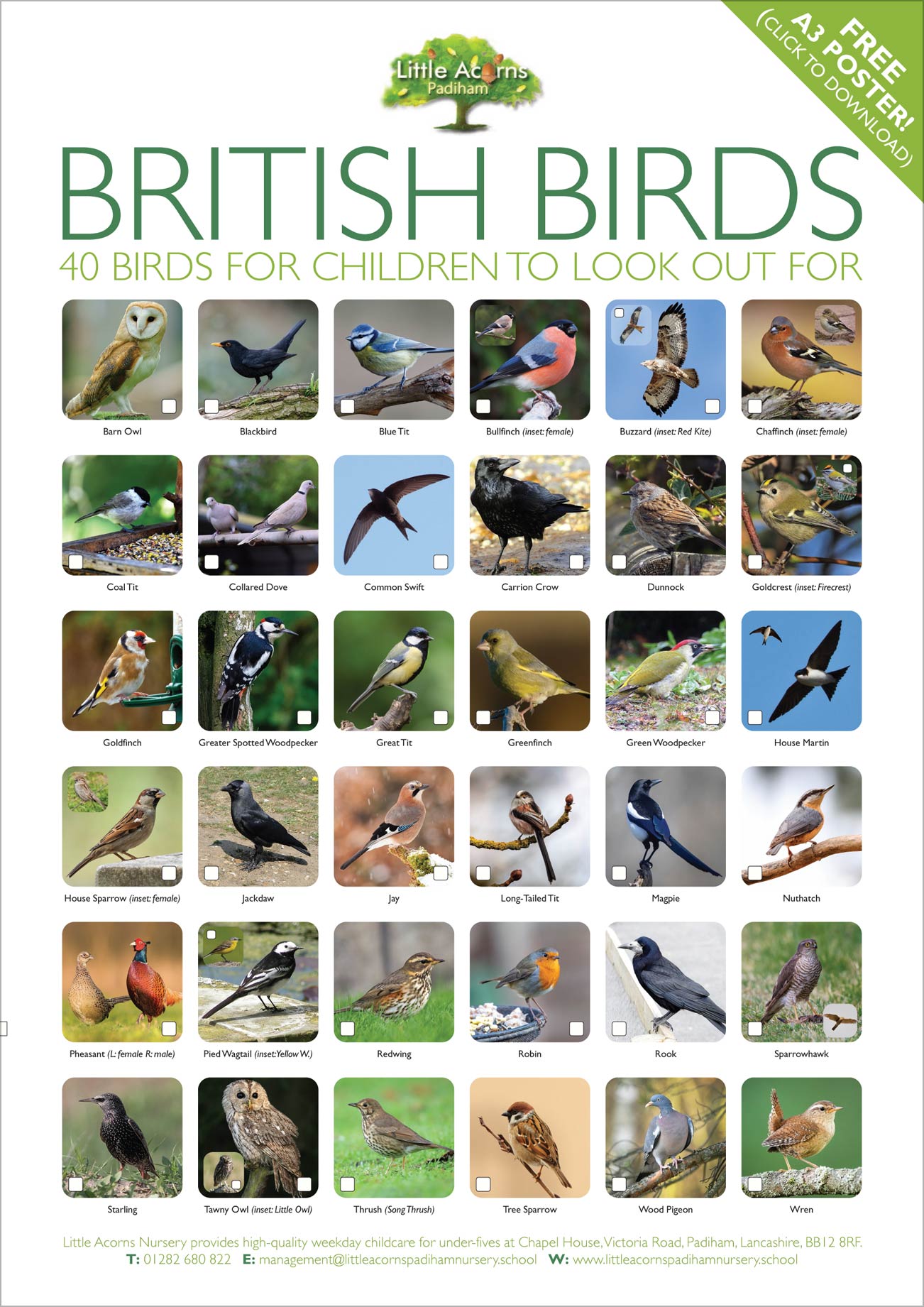
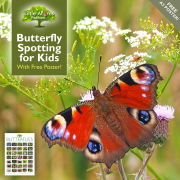
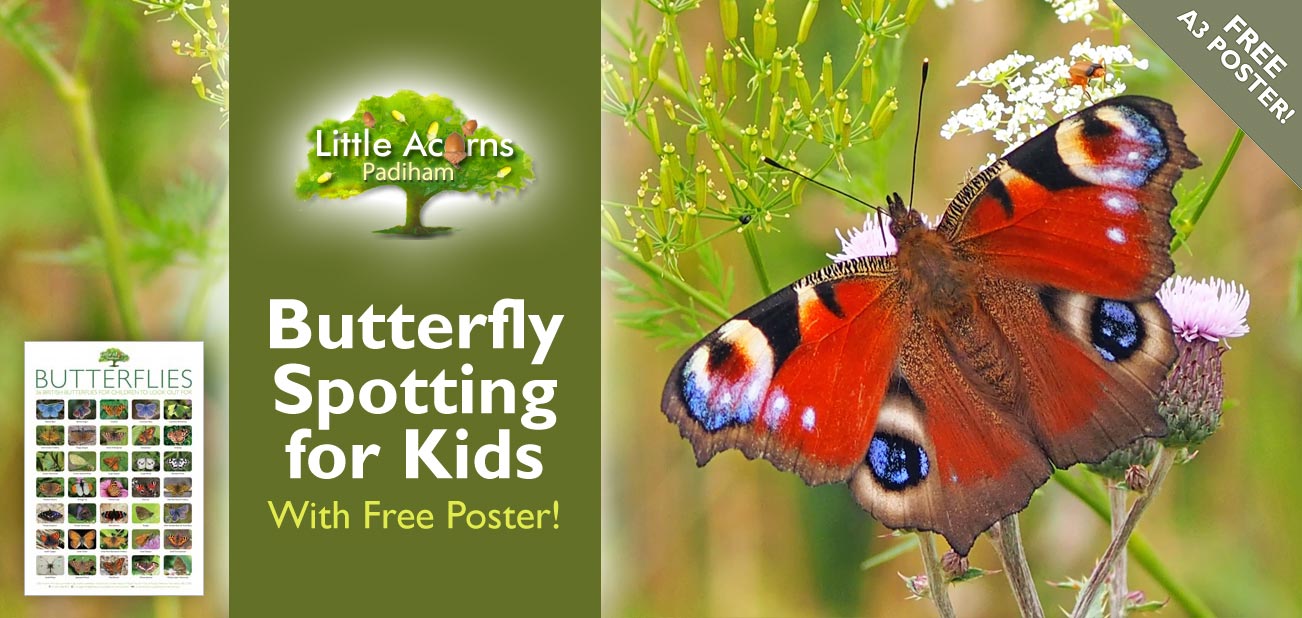
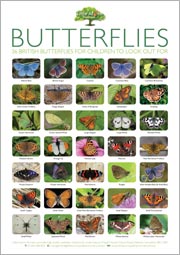 At the time of writing, it’s peak butterfly-spotting time — more adult butterflies can be seen in late July and early August than at any other time in the year. That makes it the perfect time for children to get out in nature to spot these charming creatures. Doing so is fun, educational and also beneficial in so many ways – we’ll explain more about that later.
At the time of writing, it’s peak butterfly-spotting time — more adult butterflies can be seen in late July and early August than at any other time in the year. That makes it the perfect time for children to get out in nature to spot these charming creatures. Doing so is fun, educational and also beneficial in so many ways – we’ll explain more about that later.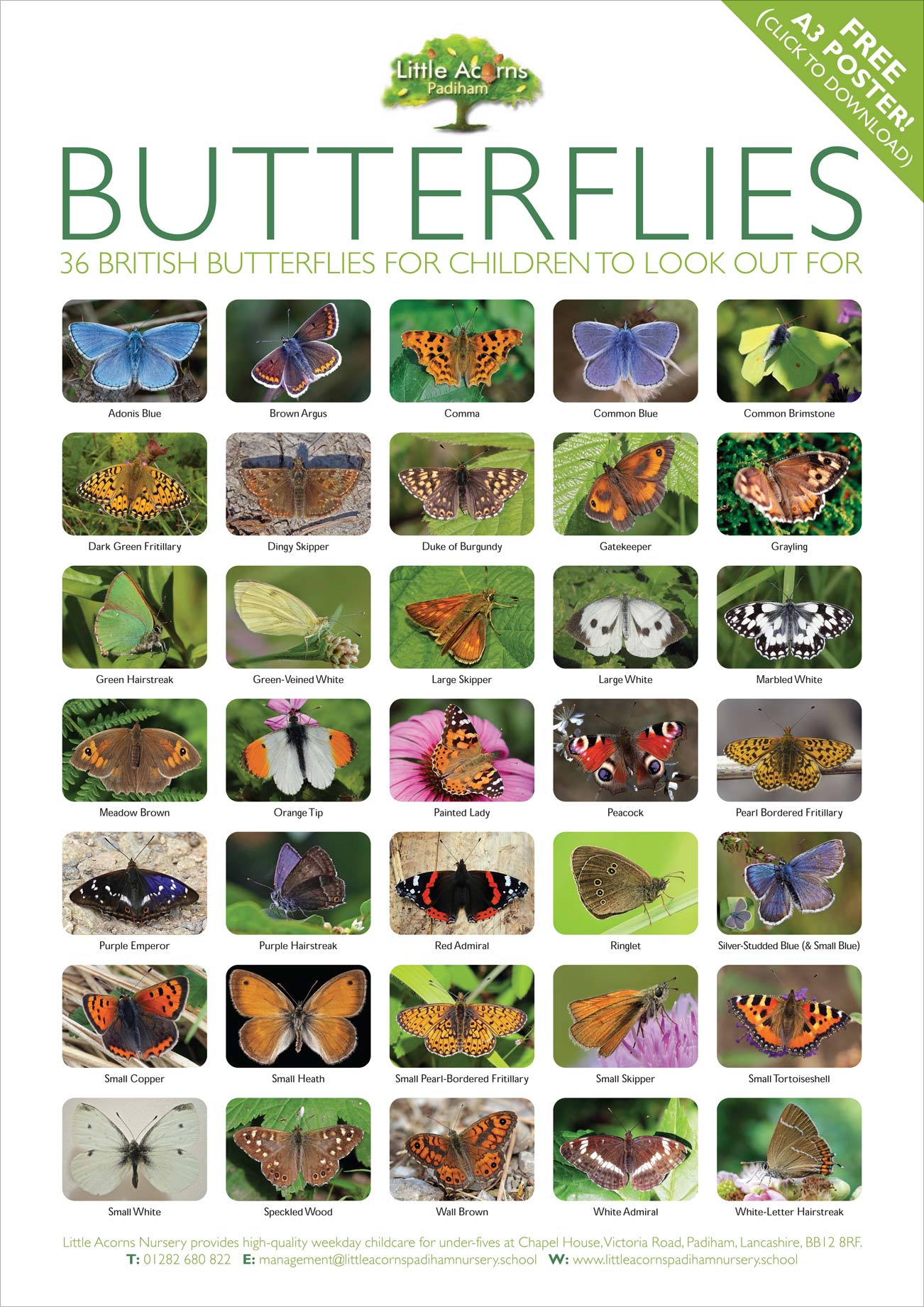
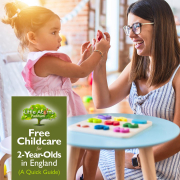
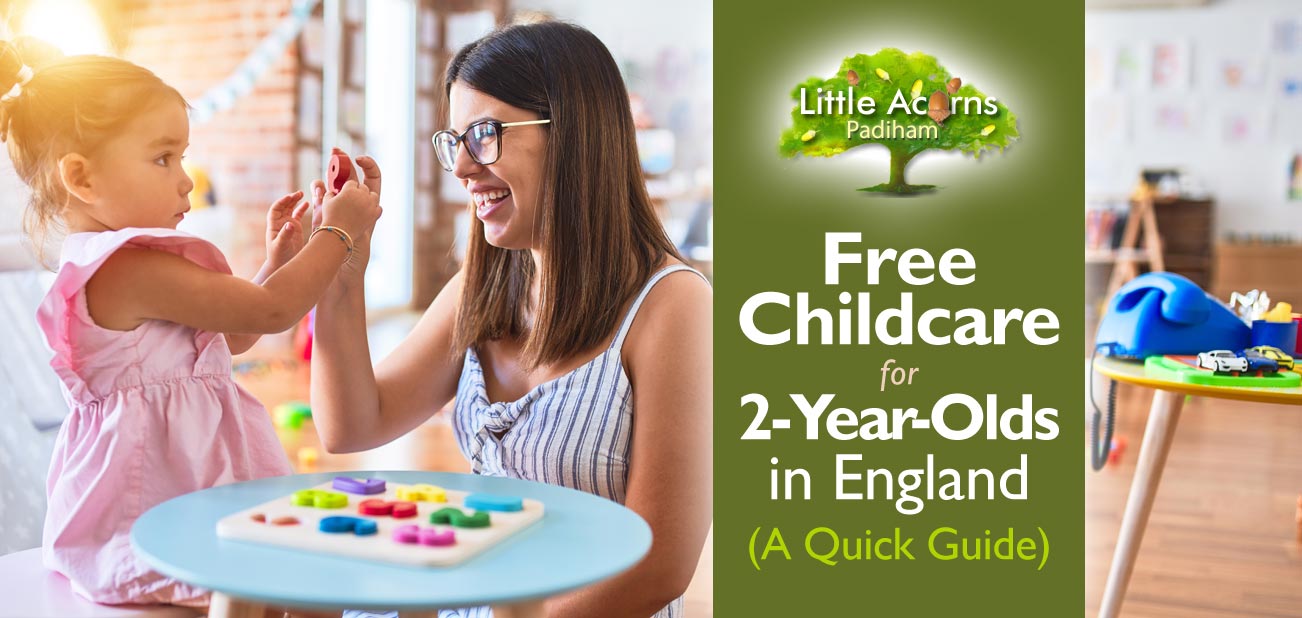
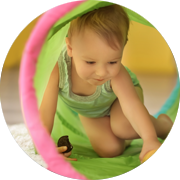 Eligible 2-year-olds can get a total of 570 free childcare hours during the course of a year. The entitlement is usually taken as 15 hours per week over 38 ‘term time’ weeks. However, families may wish to ask childcare providers if they can use the hours in a different way. For example, some may wish to stretch the hours out over 50 or so weeks of the year, in which case it would equate to approximately 11½ free hours per week. The nursery or childcare provider would need to confirm what’s possible. Any extra hours will need to be paid for by the family and the same is usually true for things like nappies, special trips and meals. Even so, 570 free childcare hours should really help families and may allow a stay-at-home parent to get back into the workplace sooner, even if only part-time.
Eligible 2-year-olds can get a total of 570 free childcare hours during the course of a year. The entitlement is usually taken as 15 hours per week over 38 ‘term time’ weeks. However, families may wish to ask childcare providers if they can use the hours in a different way. For example, some may wish to stretch the hours out over 50 or so weeks of the year, in which case it would equate to approximately 11½ free hours per week. The nursery or childcare provider would need to confirm what’s possible. Any extra hours will need to be paid for by the family and the same is usually true for things like nappies, special trips and meals. Even so, 570 free childcare hours should really help families and may allow a stay-at-home parent to get back into the workplace sooner, even if only part-time. Children aged two that live in England may be eligible if their parents/household are in receipt of one or more specific Government benefits. These include:
Children aged two that live in England may be eligible if their parents/household are in receipt of one or more specific Government benefits. These include: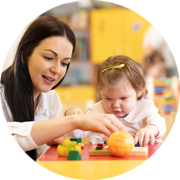 If none of the benefit-related criteria above applies, children aged 2 may still qualify for the childcare funding scheme in the following circumstances:
If none of the benefit-related criteria above applies, children aged 2 may still qualify for the childcare funding scheme in the following circumstances: The last category of eligible claimants is some 2-year-olds living in England who are non-UK citizens, whose households cannot claim benefits and whose household income is below a certain threshold. Thresholds vary from £26,500 to £38,600 depending on how many children the family has and whether they live inside or outside of London.
The last category of eligible claimants is some 2-year-olds living in England who are non-UK citizens, whose households cannot claim benefits and whose household income is below a certain threshold. Thresholds vary from £26,500 to £38,600 depending on how many children the family has and whether they live inside or outside of London.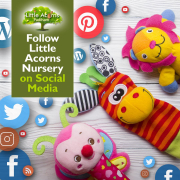
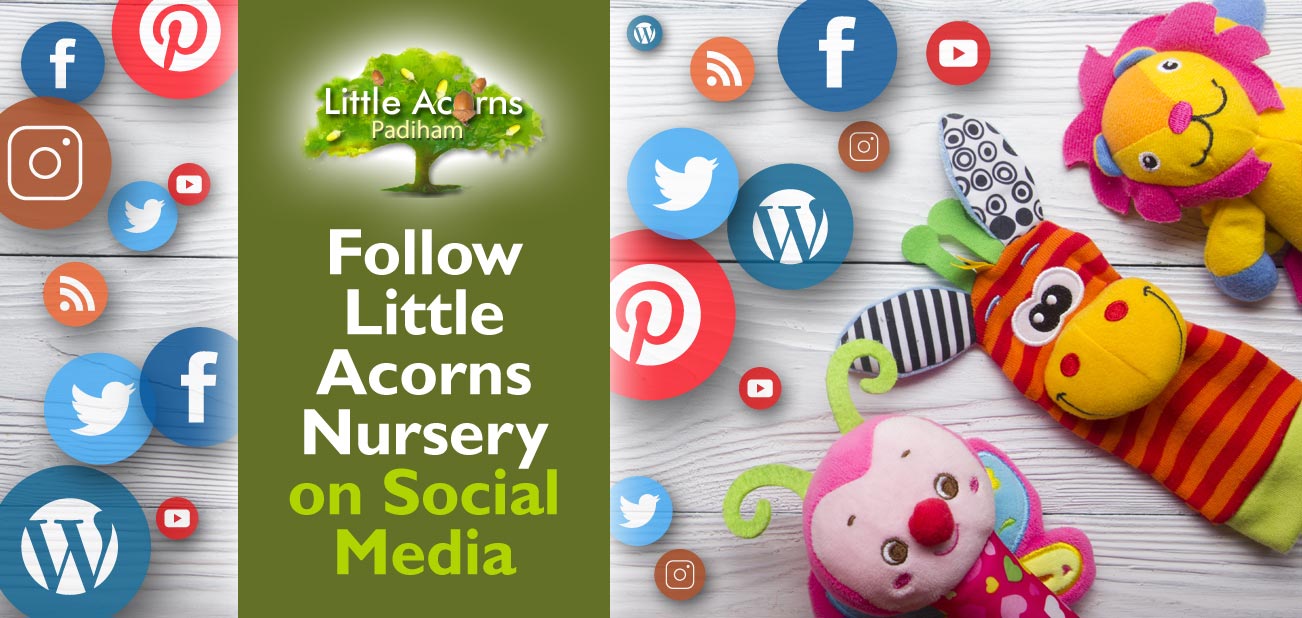
 This is what we call our blog (short for ‘web log’) where we regularly publish guides and useful information for parents of children under five.
This is what we call our blog (short for ‘web log’) where we regularly publish guides and useful information for parents of children under five.  We’re @NurseryPadiham on Twitter, so you can follow us at
We’re @NurseryPadiham on Twitter, so you can follow us at  We’re @TotsNursery on Facebook (because we took over the Adventure Tots childcare business), so you can follow us at
We’re @TotsNursery on Facebook (because we took over the Adventure Tots childcare business), so you can follow us at  We’re @LittleAcornsNurseryBB12 on Instagram, so you can follow us at
We’re @LittleAcornsNurseryBB12 on Instagram, so you can follow us at  We’re also @LittleAcornsNurseryBB12 on Pinterest, so you can follow our pins and boards at
We’re also @LittleAcornsNurseryBB12 on Pinterest, so you can follow our pins and boards at  We appreciate that, if you’re reading this, you’ve already found us. However, if you ever need to find us again and aren’t sure where to look, we’re also on Google.
We appreciate that, if you’re reading this, you’ve already found us. However, if you ever need to find us again and aren’t sure where to look, we’re also on Google. 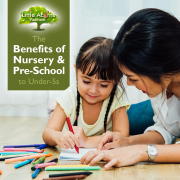
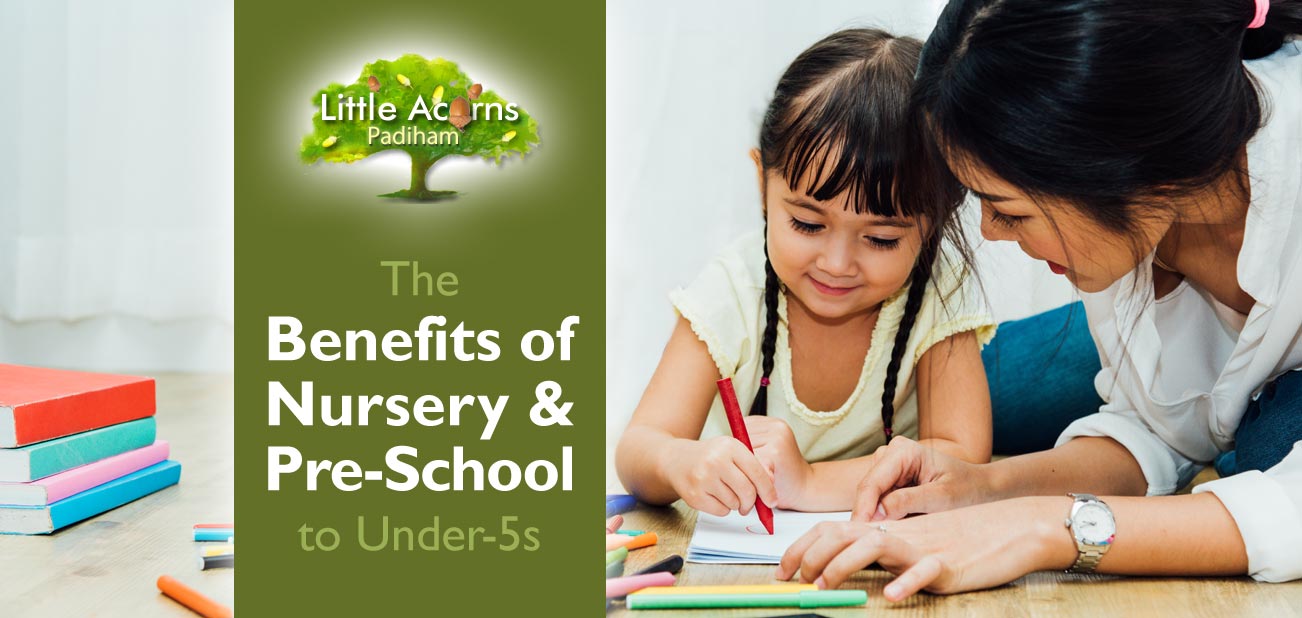
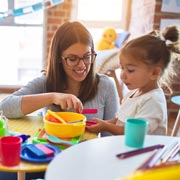 A good nursery or pre-school is so much more than just a crèche, playgroup, kindergarten or childminding service.
A good nursery or pre-school is so much more than just a crèche, playgroup, kindergarten or childminding service. 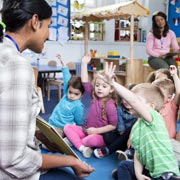 Nurseries like Little Acorns in Padiham provide a dynamic environment where children mostly learn through different types of play and pre-planned, carefully structured activities. Much of their learning is achieved through the application of the
Nurseries like Little Acorns in Padiham provide a dynamic environment where children mostly learn through different types of play and pre-planned, carefully structured activities. Much of their learning is achieved through the application of the 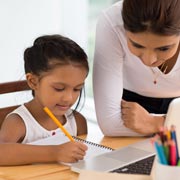 A good early years childcare provider like Little Acorns will also nurture every aspect of children’s personal development. Research suggests that starting childcare and a good early years education at a young age can have significant positive effects on children’s development.
A good early years childcare provider like Little Acorns will also nurture every aspect of children’s personal development. Research suggests that starting childcare and a good early years education at a young age can have significant positive effects on children’s development. Spending time at nursery and pre-school provides children with countless opportunities to interact with peers and to learn to socialise with others. Through doing so, they’ll develop their social skills generally, including things like learning good manners, needing to sometimes share or take turns, learning about mutual respect, and following rules.
Spending time at nursery and pre-school provides children with countless opportunities to interact with peers and to learn to socialise with others. Through doing so, they’ll develop their social skills generally, including things like learning good manners, needing to sometimes share or take turns, learning about mutual respect, and following rules.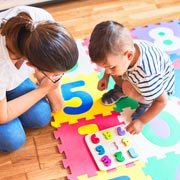 Good nurseries and pre-schools like Little Acorns welcome and support children of all abilities. As part of this and whenever possible, they will create an inclusive environment for children with special educational needs or disabilities (SEND). They’ll support them in every way they can including, where possible, provision of special equipment, adapting the environment to make it more accessible, and obtaining additional funding for extra resources. They’ll even work with outside professionals, where appropriate, to develop the best ‘joined-up’ plan to support children. The result is a positive and responsive culture where children feel comfortable and valued, irrespective of ability or disability.
Good nurseries and pre-schools like Little Acorns welcome and support children of all abilities. As part of this and whenever possible, they will create an inclusive environment for children with special educational needs or disabilities (SEND). They’ll support them in every way they can including, where possible, provision of special equipment, adapting the environment to make it more accessible, and obtaining additional funding for extra resources. They’ll even work with outside professionals, where appropriate, to develop the best ‘joined-up’ plan to support children. The result is a positive and responsive culture where children feel comfortable and valued, irrespective of ability or disability.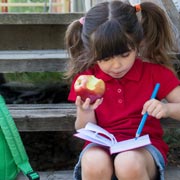 All of the above will really help children to develop the skills and confidence they need to absolutely thrive once they start at primary school. As well as being more able and literate from the moment they start, they’ll more easily be able to follow routines, listen to instructions, and work independently. They’ll absolutely hit the ground running with the existing knowledge, tools and abilities that they learned during their all-important early years. Indeed, those children who receive a high quality early years education have been shown to attain higher grades in their GCSEs and can be the equivalent of a year ahead by the time they reach the age of 15.
All of the above will really help children to develop the skills and confidence they need to absolutely thrive once they start at primary school. As well as being more able and literate from the moment they start, they’ll more easily be able to follow routines, listen to instructions, and work independently. They’ll absolutely hit the ground running with the existing knowledge, tools and abilities that they learned during their all-important early years. Indeed, those children who receive a high quality early years education have been shown to attain higher grades in their GCSEs and can be the equivalent of a year ahead by the time they reach the age of 15.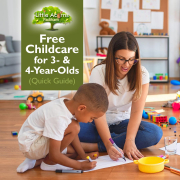
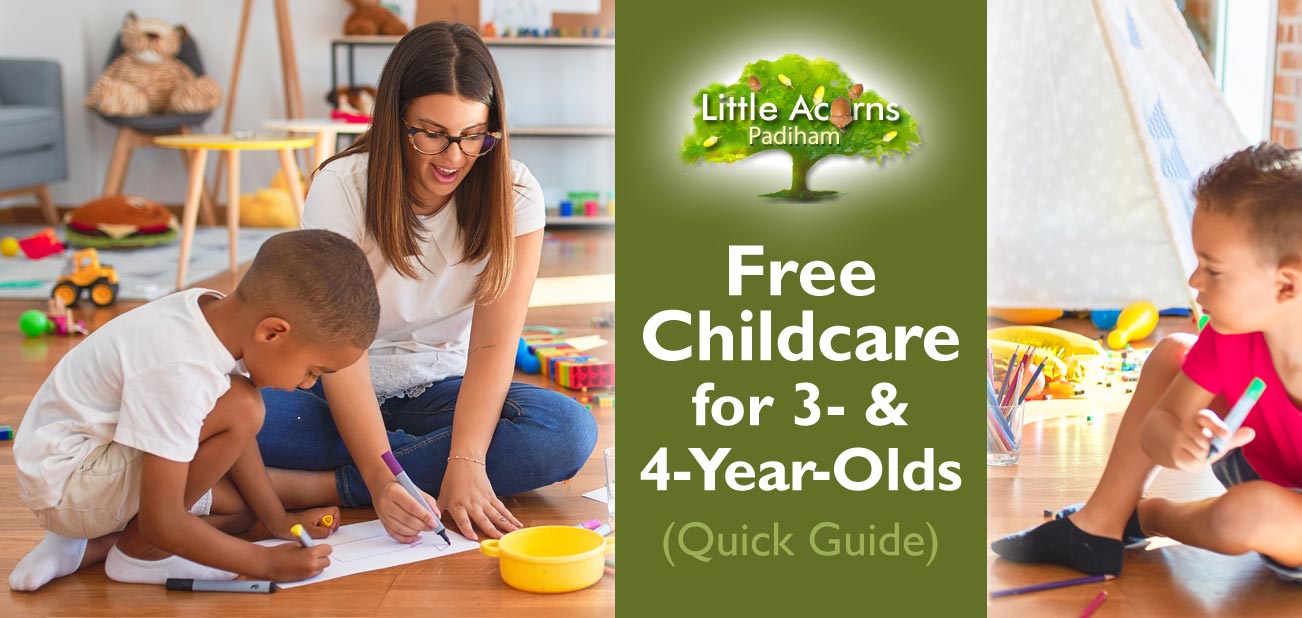
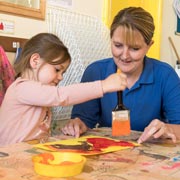 If you live in England and have a child aged 3 or 4, this article is for you. Did you know that your child is entitled to free childcare each week? In fact, virtually all children aged 3 or 4 that live in England can get an impressive 570 hours of free childcare each year. Some can even get twice that amount of funded childcare hours. Today we’ll go through what’s available – totally free of charge – and the rules around eligibility.
If you live in England and have a child aged 3 or 4, this article is for you. Did you know that your child is entitled to free childcare each week? In fact, virtually all children aged 3 or 4 that live in England can get an impressive 570 hours of free childcare each year. Some can even get twice that amount of funded childcare hours. Today we’ll go through what’s available – totally free of charge – and the rules around eligibility.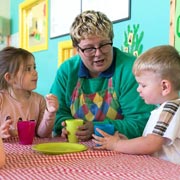 The ‘15 Hours Free Childcare’ scheme is a Government-funded initiative that provides free early education and childcare for all 3- and 4-year-olds living in England. Under the scheme, eligible children are entitled to 15 hours of free childcare each week, usually spread over 38 weeks, to total 570 hours per year. Optionally, however, some families may choose to have their child attend a childcare setting for less than 15 hours per week but spread the free hour allowance throughout the whole year. Others may prefer to take longer breaks during the holidays and using the hours more intensively during term time. Parents/guardians will need to check what’s possible with their particular childcare provider (we try to be as flexible as possible at
The ‘15 Hours Free Childcare’ scheme is a Government-funded initiative that provides free early education and childcare for all 3- and 4-year-olds living in England. Under the scheme, eligible children are entitled to 15 hours of free childcare each week, usually spread over 38 weeks, to total 570 hours per year. Optionally, however, some families may choose to have their child attend a childcare setting for less than 15 hours per week but spread the free hour allowance throughout the whole year. Others may prefer to take longer breaks during the holidays and using the hours more intensively during term time. Parents/guardians will need to check what’s possible with their particular childcare provider (we try to be as flexible as possible at 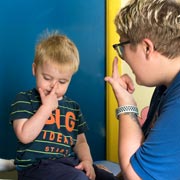 You must be the child’s parent or legal guardian.
You must be the child’s parent or legal guardian.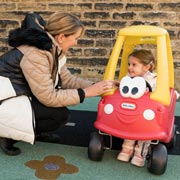 The ‘30 Hours Free Childcare’ scheme is a very similar Government-funded initiative that provides eligible families in England with up to 30 hours of free childcare per week. Again, this is for children aged 3 and 4. The scheme is designed to help working families with the cost of childcare and to support parents who want to return to work or increase their hours.
The ‘30 Hours Free Childcare’ scheme is a very similar Government-funded initiative that provides eligible families in England with up to 30 hours of free childcare per week. Again, this is for children aged 3 and 4. The scheme is designed to help working families with the cost of childcare and to support parents who want to return to work or increase their hours.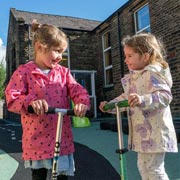 You are usually still be eligible if you are off work on annual leave or sick leave, or parental leave if it is not being taken for the same child you are claiming childcare funding for.
You are usually still be eligible if you are off work on annual leave or sick leave, or parental leave if it is not being taken for the same child you are claiming childcare funding for.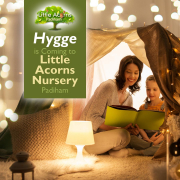
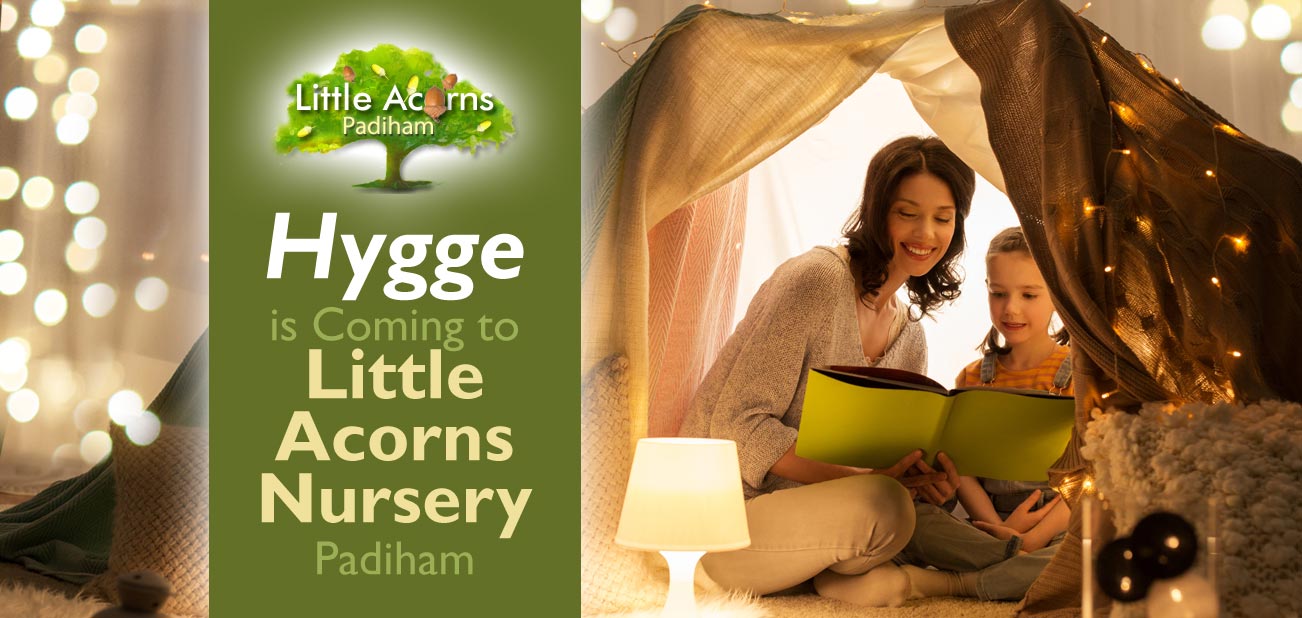
 One of the exciting new initiatives that we have planned for Little Acorns nursery, Padiham, is to make it a Hygge setting. In today’s post, we explain what Hygge means and how it will benefit the setting, especially the children. Once the Hygge initiative has been fully adopted, it will positively transform the whole feel of the nursery and benefit everyone. Introducing Hygge is exciting and the children are going to love it! To be truthful, we can’t wait to get started!
One of the exciting new initiatives that we have planned for Little Acorns nursery, Padiham, is to make it a Hygge setting. In today’s post, we explain what Hygge means and how it will benefit the setting, especially the children. Once the Hygge initiative has been fully adopted, it will positively transform the whole feel of the nursery and benefit everyone. Introducing Hygge is exciting and the children are going to love it! To be truthful, we can’t wait to get started! Counter to the instincts of those whose first language is English, Hygge is pronounced “Hue-Gah” rather than “Hig”. It is popular in Denmark and Norway and is a Danish word that refers to a rather beautiful lifestyle; one of cosiness, homeliness, contentment and comfort. Wellbeing, warmth and conviviality are central to the Hygge approach. Friendliness, a welcoming atmosphere and closer links to nature are key parts of the Hygge way of life too. Having a more simple lifestyle and living far more in the moment are also part and parcel of Hygge. With such facets, Hygge naturally fosters happiness and contentment in everyone that it touches. Indeed, that’s one of the many reasons we can’t wait for both children and staff to start embracing it at Little Acorns Nursery.
Counter to the instincts of those whose first language is English, Hygge is pronounced “Hue-Gah” rather than “Hig”. It is popular in Denmark and Norway and is a Danish word that refers to a rather beautiful lifestyle; one of cosiness, homeliness, contentment and comfort. Wellbeing, warmth and conviviality are central to the Hygge approach. Friendliness, a welcoming atmosphere and closer links to nature are key parts of the Hygge way of life too. Having a more simple lifestyle and living far more in the moment are also part and parcel of Hygge. With such facets, Hygge naturally fosters happiness and contentment in everyone that it touches. Indeed, that’s one of the many reasons we can’t wait for both children and staff to start embracing it at Little Acorns Nursery.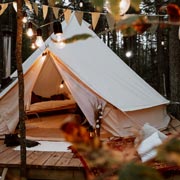 Once we’ve adopted Hygge at the nursery, it’ll look and feel warmer and far more welcoming, with softer, warmer lighting and a more homely atmosphere. Gone will be anything that looks sterile, cold or even harshly lit. Instead, expect to see soft furnishings including cushions, rugs and blankets. Look out for little nooks where children can gather in small groups to read, play or engage with each other or with staff. Hygge nurseries are also synonymous with dens and teepees, allowing children to ‘nest’ in calm, cosy spaces and corners. All these things will also deaden sound, reduce noise levels, and banish echoes, making for a much calmer setting entirely.
Once we’ve adopted Hygge at the nursery, it’ll look and feel warmer and far more welcoming, with softer, warmer lighting and a more homely atmosphere. Gone will be anything that looks sterile, cold or even harshly lit. Instead, expect to see soft furnishings including cushions, rugs and blankets. Look out for little nooks where children can gather in small groups to read, play or engage with each other or with staff. Hygge nurseries are also synonymous with dens and teepees, allowing children to ‘nest’ in calm, cosy spaces and corners. All these things will also deaden sound, reduce noise levels, and banish echoes, making for a much calmer setting entirely. We mentioned that Hygge brings people closer to nature and that will be evident not only outside but indoors too. We’ll ensure there are natural objects and materials for the children to explore and handle, including things like smooth pebbles, wood surfaces, pine cones and perhaps reed and wicker items. These will be lovely to handle and to be around, stimulating multiple senses, which is so important in the young. The introduction of appropriate plants will also
We mentioned that Hygge brings people closer to nature and that will be evident not only outside but indoors too. We’ll ensure there are natural objects and materials for the children to explore and handle, including things like smooth pebbles, wood surfaces, pine cones and perhaps reed and wicker items. These will be lovely to handle and to be around, stimulating multiple senses, which is so important in the young. The introduction of appropriate plants will also  Children will also be encouraged to be convivial, i.e. be friendly, inclusive, pleasant and welcoming to one another and to staff. We always try to foster a culture of mutual respect and equality, but the introduction of Hygge to the nursery will take this even further. Sharing and politeness are to be encouraged. Play will be calmer and more harmonious. With Hygge, growing friendships will naturally blossom. Hygge minimises conflict and leads to harmony, calmness and a very pleasurable day-to-day experience for everyone touched by it.
Children will also be encouraged to be convivial, i.e. be friendly, inclusive, pleasant and welcoming to one another and to staff. We always try to foster a culture of mutual respect and equality, but the introduction of Hygge to the nursery will take this even further. Sharing and politeness are to be encouraged. Play will be calmer and more harmonious. With Hygge, growing friendships will naturally blossom. Hygge minimises conflict and leads to harmony, calmness and a very pleasurable day-to-day experience for everyone touched by it.